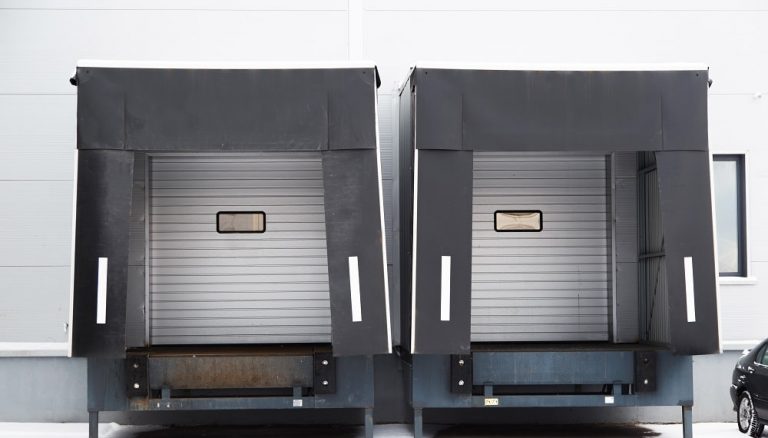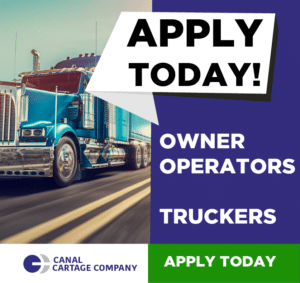One of the challenges that commercial businesses face is the frate shipping options used to reduce the cost of export or import goods. At Canal Cartage, we have over 500 privately owned chassis to handle volume shipments including overweight containers, with light tractors and experienced drivers to assist you with your drayage needs. But should you choose FCL or LCL for your business?
There are two general types of freight options for dry and non-refrigerated goods; full container shipping (FCL) and Less Than Container shipping (LCL). In this article we’ll talk a little bit about saving costs and finding the right freight options for your business.
The Advantages of Full Container (FCL) Shipping and Drayage
Whether you are sourcing your goods from overseas suppliers in China, Thailand or South America, or from another American business, full container shipping offers some of the most competitive rates and freight options. In this model, your business would be exporting or importing goods that fill an entire container.
This method makes sense if you are a volume importer or exporter. There is a big difference between rates for FCL shipping versus LCL shipping, because managing the freight is much easier. The container and all the goods or materials inside belong to you. The container does not have to be opened to remove a pallet or two of merchandise or supplies. It is simply loaded (or offloaded) from the vessel, and then held in queue until it is picked up by a dispatched truck.
When a Full Container Load (FCL) arrives at the Port, it is unloaded from the vessel and delivered to the truck, and then the buyer in a very streamlined way that minimizes delay, and potential damage and loss.
- It is more cost-effective when transporting over 15 cubic meters of a 20-foot GP container.
- It is more cost-effective than air freight (with a slightly longer delivery time).
- Faster transit, loading and offloading of goods at the Port of destination, as the container is handled less, and does not require opening to remove partial shipments and pallets.
- Offers more security and reduces the risk of damage. Sometimes shared containers that contain pallets owned by multiple customers have to be moved around, removed from the container to access other goods, and during that process damage can occur.
Every time a container is opened (during the LCL process) paperwork must be filled out, processing multiple documents per container before pallets are sorted out for each customer. And that makes LCL a slower process that can delay your goods and increase shipping costs.
Cost Savings and Considerations for Less Than Container (LCL) Freight
Less Than Container (LCL) freight is more expensive, because of economies of scale and the amount of handling and management that LCL cargo requires. Whenever possible, our advice to business owners is to consolidate their freight to save on costs.
But some businesses do not order in volume. Sure, ordering big containers is a great idea if you are Walmart, but other businesses may need 3-4 pallets of goods or less, in which case they will seek less than container shipping options instead.
What you need to know about less than container (LCL) shipping is that it does cost more than FCL (full container) freight options. The Ports naturally prefer a full container, because it is easy to unload, store and then queue up for delivery to one single truck. The documentation process is easier, and it also helps reduce the congestion of trucks at busy ports.
Business owners who operate an e-commerce retail store (or more than one) import goods from China and other countries by the pallet. Some of these goods are forwarded to Amazon for FBA (Fulfilled by Amazon) centers, where they will be unpacked and stored for the customer and shipped to each online shopper as the order is processed. The most frequent choice for these types of businesses is LCL shipments, because an FCL shipment requires a delivery appointment with Amazon that can delay the return of the container. Full container shipments to Amazon can result in additional demurrage and per diem fees if the container is not returned on time.
One of the advantages of an LCL shipment is that you are given a little bit extra time to pick up your pallet(s) at the Port. The average is about five days, and then about 6 days at the deconsolidation warehouse, before you begin to accrue storage fees for your goods.
Warehouse Consolidation with Canal Cartage for LCL Freight
Did you know that Canal Cartage has a large, secure warehouse facility in La Porte, Texas? Because many commercial businesses rely on LCL (less than container load) shipping of palleted goods, we provide a safe and affordable solution for consolidation.
When sourcing goods and supplies overseas, there can be many delays through U.S. Customs and from the manufacturer themselves. Even when you place your merchandise or supply orders to attempt to coordinate arrivals at the same time, the logistics do not always work out the way you plan because of these unforeseen delays.
It doesn’t make sense to hire a truck for a single pallet, if you have multiple pallets coming through the Port of Houston. So, what we provide is a state-of-the-art warehouse, where you can arrange to store the pallets until all your goods have arrived, at which time we can assist your delivery to your business location. We serve commercial businesses across the State of Texas, and to nearby surrounding states, for palleted goods. We also provide delivery services with HME certified drivers for hazardous materials.
We hope you have enjoyed our tips and advice about deciding the best freight and consolidation options for your business. At Canal Cartage, we have an experienced logistics customer support team that is available to answer any questions you have about competitive rates for freight, drayage and transmodal (train) container services.
Make Canal Cartage your first choice for quality drayage from Port Houston, Texas. Contact us today or use our quote form on our website, to get a fast and competitive rate for your freight and logistics needs. We’re ready to help your business streamline your commercial freight services and save money.



